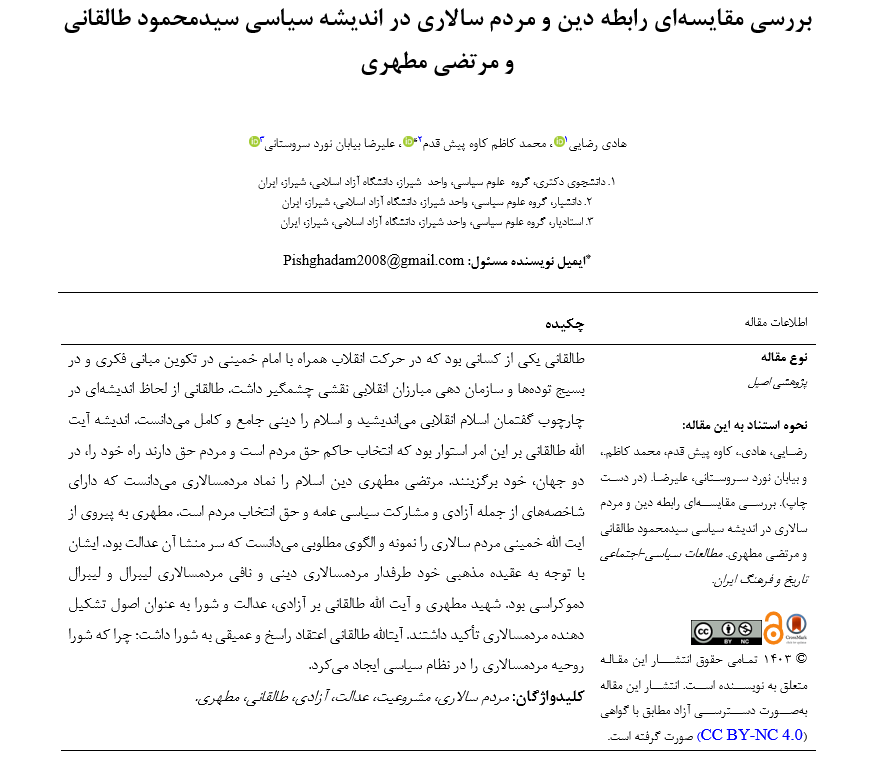A Comparative Study of the Relationship Between Religion and Democracy in the Political Thought of Seyyed Mahmoud Taleghani and Morteza Motahhari
Keywords:
Democracy, Legitimacy, Justice, Freedom, Taleghani, MotahariAbstract
Taleghani was among those who played a significant role in shaping the ideological foundations of the revolutionary movement alongside Imam Khomeini, mobilizing the masses and organizing revolutionary activists. Taleghani's intellectual framework was rooted in the discourse of revolutionary Islam, perceiving Islam as a comprehensive and complete religion. His political thought emphasized that the selection of rulers is the people's right, and they have the authority to choose their path in both worlds. Morteza Motahhari regarded Islam as a symbol of democracy characterized by features such as freedom, public political participation, and the people's right to choose. Influenced by Imam Khomeini, Motahhari viewed democracy as an ideal model, originating from justice. Based on his religious beliefs, he supported religious democracy while rejecting liberal democracy. Both Martyr Motahhari and Ayatollah Taleghani emphasized freedom, justice, and consultation (shura) as foundational principles of democracy. Ayatollah Taleghani held a profound and unwavering belief in consultation, as he considered it integral to fostering a democratic spirit within a political system.
Downloads

Downloads
Published
Submitted
Revised
Accepted
Issue
Section
License
Copyright (c) 2025 Hadi Rezaei (Author); Mohammad Kazem Kaveh Pishghadam (Corresponding Author); Alireza Biyaban-Navard Sarvestani (Author)

This work is licensed under a Creative Commons Attribution-NonCommercial 4.0 International License.







